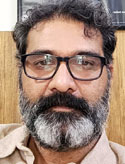The Burqa in Question

By Arshad Alam, New Age Islam
27 July, 2015
It is common sense to assume that Burqas are retrogressive. It is considered as the very embodiment of medievalism, something which should be discarded in the contemporary times. I personally do not have any problems with this argument. I think it is a patriarchy that is imposed on women although it would be fair to suggest that many believing Muslim women wear it out of choice. Despite my own reservations on the Burqa, I respect that choice.
The issue
in question here though is altogether different. It was pointed out and
documented that pre medical tests (AIPMT) were being conducted unfairly. These
unfair means included using chits hidden inside Burqas, and several other
religious garments like the Sikh headgear, etc. It was in this context that the
Supreme Court rejected the prayers of the petitioners like the SIO (a student
wing of Jamaat e Islami). The argument of the court is very simple: taking away
religious symbols for a few hours does not take the away the persons’ religion.
The SC was categorical in its assertion that they were not arguing for a ban on
all French symbols in the public sphere like the French state. Muslim women
were free to don the Burqa whenever they pleased, but not in taking exams,
especially since it raised the issue of malpractice, which has been documented
and proved in some cases.
The larger
problem is that this simple observation of the court becomes a debate about the
nature of secularism in this country, the imposition of the Hindutva agenda and
the question of religious freedom guaranteed in the constitution. This is
especially hypocritical for organizations like the SIO whose own history never
believed in the idea of a secular state, forget about secularism. We should
also remember the SIO and other organizations have treated dissent as is
evident from their hounding of Taslima Nasreen and other writers who have who
have questioned their interpretation of Islam. It is a unique case where these
Muslim organizations want a secular government but they do not want the
secularization of their own society.
But there
is something more that needs to be said. And this is about those secularists
(Muslims or otherwise) who are criticizing the position of the Supreme Court as
an infringement on religious freedom of Muslims. This is simply erroneous to
say the least. For one, the Court’s observation does not relate to Muslim
religious symbols alone, but to all other faiths such as Sikhism, Christianity,
etc. It is the media which has portrayed that it is a Muslim issue alone.
Again, Muslim organizations have left no stone unturned to turn the issue by
playing the victim. The changing nature of the state is important; the rise of
Hindutva poses a great threat to the idea of a composite India (if it ever
existed). All these things are important and cannot be overlooked. But this
should not lead to a closure of debate on things that plainly wrong in Indian
Muslim society.
Since the
SIO has made it into a religious issue of right, let me ask them some basic
questions: have they ever raised any issue over the fact that Muslim women are
not allowed to drive in Saudi Arabia? Have they condemned the flogging of Saudi
blogger Raif Badawi? Have they ever questioned the culture of beheading in
Saudi Arabia? Or the ways in which Saudis are slithering to pieces the
civilians in Yemen? Now of course a criticism can be made that India cannot be
compared to Saudi Arabia. True. But then there has to be a consistency (not
hypocrisy) in what an organization is doing. Going by its dubious history where
its ideologue Maududi considered the modern state as the devil incarnate, it
looks like the SIO’s current posturing on Burqa is another attempt to monopolise
the discourse on their terms. Those who are viewing the whole issue through the
prism of minority rights are doing two things: one, they are supporting a
retrograde organization; two, they are not listening to dissenting voices
coming from within the community.
Arshad Alam is assistant professor at the Centre for the Study of Social Systems, JNU, Delhi.
URL: https://newageislam.com/islam-women-feminism/the-burqa-question/d/104043
